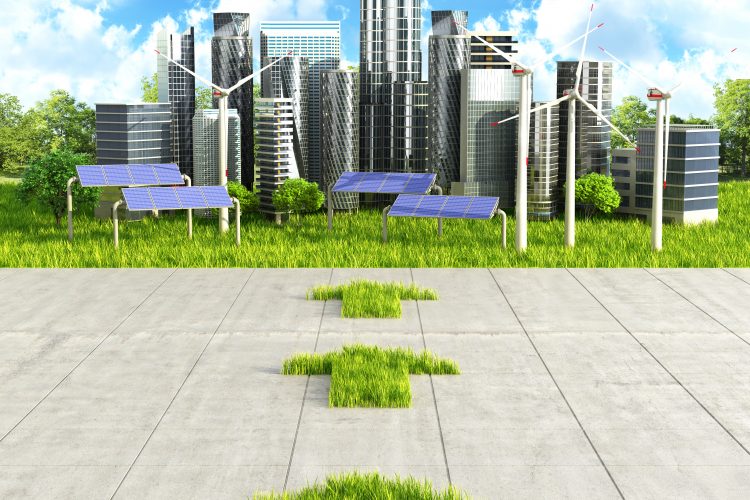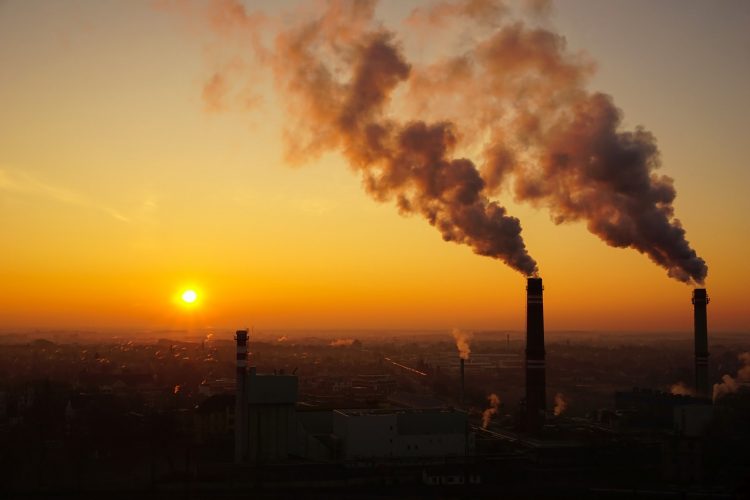A hyperlocal food revolution
- Like
- Digg
- Del
- Tumblr
- VKontakte
- Buffer
- Love This
- Odnoklassniki
- Meneame
- Blogger
- Amazon
- Yahoo Mail
- Gmail
- AOL
- Newsvine
- HackerNews
- Evernote
- MySpace
- Mail.ru
- Viadeo
- Line
- Comments
- Yummly
- SMS
- Viber
- Telegram
- Subscribe
- Skype
- Facebook Messenger
- Kakao
- LiveJournal
- Yammer
- Edgar
- Fintel
- Mix
- Instapaper
- Copy Link
Posted: 23 August 2019 | Vincent Walsh | No comments yet
The present industrialised, global food economy and futures market is unsustainable, but it has inspired some new ways of thinking that affect the way we produce, distribute, buy, eat and dispose of food. Food technology specialist Vincent Walsh explains the changes we are seeing and what opportunities exist to facilitate a system revolution.


The biggest factors pushing change in localised food processing can be attributed to three key areas: the climate crisis, consumer expectations, and the exponential growth of emerging technologies.
The food industry is looking to become more efficient, sustainable, adaptive and ecological; this is essentially how the industry needs to evolve. Such factors were not considered to be important for a food brand 10 years ago but have since become crucial. The expectation of consumers, especially the millennial generation, has also changed. Today, 16-35-year-olds want to know where their food has come from; how it has been processed; and be assured that it is going to have a positive effect on both the climate and their bodies.
New food innovators and food company start-ups must be in tune with these 21st century challenges, as evidenced by initiatives such as Bio-bean, Meatless Farm and V-Bities, all of which have a sustainability focus. The bottom line may be profit, but it is profit garnered in a sustainable and ecological manner.
Changing behaviours
The marketing of convenience by international corporations and the petrochemical industries throughout the 20th Century overpowered much consumer choice. However, since organisations like CAMRA in the ’70s and Common Ground in the early ’90s set trends for diverse, natural, less processed produce, retailers, followed by food growers, started to listen and respond to customer demands.
We are still at the very early stages of a biological revolution and a key part of this change is the exponential growth of emerging technologies. New technologies are helping us to create new packaging materials that are highly biodegradable. These innovations and materials are supporting the food industry to slowly move from an industrial model to a natural-based model that can self-sustain – a so-called ‘circular metabolism’.
In the last 24 months there has been an array of innovations to support the reduction of plastics in the food industry, and these are having a major impact on sustainability and resilience-based thinking.
A circular economy is designed to be a regenerative and restorative system; to resource input waste, emissions, and energy leakage by slowly closing and narrowing energy and material loops. This can be achieved through long-lasting design, maintenance, repair, reuse, remanufacturing, refurbishing, recycling and upcycling.
The notions for circular economy are ancient but have recently been linked to 19th Century ideas such as ecological life-support systems. A true circular economy methodology in the food sector will have tremendous benefits. If developed correctly, it will eradicate waste; this method can be achieved at a local level, but the biggest impact and benefits will be seen when entire cities act as a circular economy – a ‘metabolic hub’. This means an integrated, sustainable, circular technology, building economic, natural and social capital by redesigning both technical and biological cycles.
By adopting these huge circle economic opportunities at city level, we may see food as a key biological infrastructure. As such, water, waste and energy systems can be interconnected as a circular system, transforming linear systems of consumption and waste to a sustainable and regenerative circular model. The possibilities for integrating food processes that support circularity, sustainability and resilience will create enormous opportunities for economic gains, beyond outmoded models of endless growth.
Barriers and risks
Perhaps the biggest barrier to achieving a circular economy is the reluctance of global corporations such as Bayer, ExonMobil and BP to relinquish their control of industrial production, including the food industry. As their power and influence overrides most of the world’s political and economic systems, it is essential that they learn how they may benefit too.
The biosphere is a unique, complex life support system. Monoculture – the cultivation of a single crop in a given area – is one example of a simplified system that represents ecological collapse. Most recently, we can see how Brazil’s accelerated destruction of the Amazon rain forest that forms the backdrop to 60 years of monocultural agroindustry and clear-cut logging has irrevocably contributed to the climate crisis and species and cultural extinctions.
Indeed, if the Paris Agreement with the United Nations Framework Convention on Climate Change is fully realised, much of the world’s food-producing land will be used to grow biomass for energy production, not food. The increasing desertification of much of the planet and ecological collapse will take thousands of years to recover and return to a state of diverse living evolution.
New methods
From a hyper-localised perspective, a group of food tech specialists and restaurateurs are creating new restaurant platforms such as Herblabism – The Ecological Food Company. They are realising that the modern consumer demands more intelligent, sustainable, ecological and importantly transparently produced food.
Herblabism is doing this by developing a full circular economic food platform that will control production and distribution systems, thereby investing in both agroforestry and agri-tech systems and being less vulnerable to fluctuations in the global food market. It also means that they can support the production of organic food (no pesticides and natural fertilisers), which is important when developing a circular food system. The distribution platform (the restaurant) uses sustainable and ecological processes, such as dehydration, cold pressing and fermentation, to maximise the taste and longevity of the food. Finally, the waste from the restaurant goes back to the agroforestry system to feed the vermiculture and fungi system that turns it back into nutrients; and the cycle starts again. This model represents the future of hyper-localised food infrastructure.


The global food industry is unsustainable, contributing hugely to the climate and species crisis.
A revolution is needed
Presently, the whole of the food industry is highly unsustainable; destroying the biosphere it depends on rather than working with it. The 1960s Green Revolution – with its illusion of greater efficiency – increased global food production without fully understanding the negative effects of monoculture: globalised agriculture for the capitalist economic system. Rachel Carson’s environmental science book, Silent Spring, which warned of the undiscerning use of pesticides and their impact on humans and the environment, were ignored at the time. But we are no longer in the dark; we know without a shadow of doubt that it is killing the biosphere – all 20 million species within it and ourselves.
The entire food industry is unsustainable, around six containers of edible food are, on average, wasted every second
Sixty years on, waste is produced in every part of the food supply chain. A third of all edible food continues to go uneaten. On average, every second, six containers of edible food are wasted. Pesticides and synthetic fertilisers systematically destroy forests (39 million hectares), soils, microorganisms and fungi at an alarming rate. By definition, the economics of the global food industry is wasteful as it values financial profit over food and ecosystems.
Now is the right time for a paradigm shift away from neoliberal economics. A circular economy offers a leverage point in that transition. It is time for the whole food industry to move to a regenerative, circular economy model, as failure to do so will dismantle the biosphere to the point of no return within the next 75 years. It is a crucial step in the right direction, as we now understand how to develop biological and technological infrastructures to enable a full circular economy.
City platforms and world leading organisations like Metabolic and Biopolus, among others, are leading the way in these innovations. The vision is not a fixed formula, but a restorative, regenerative direction.
Changing cities will have the biggest impact. In the future, cities will have to act like a metabolic hub, mirroring the ecological principles of the biosphere. We know what to do – we have all the technologies and biological understanding to do it – but we need to do it now. Locally and globally, there is not one single solution to these issues; one size does not fit all. Instead, we need a diverse matrix of solutions that are appropriate for different societies, environments and cultures, but this requires a whole system shift, together and at the same time.
The UK, as a current member of the EU, has systematically destroyed its own agricultural and fishery sectors – this is not a co-dependent relationship. In pursuit of global markets, the UK has become highly reliant on European, mostly Mediterranean, monoculture crops. We are importing approximately 30 percent of our unprocessed food from the EU, turning the Iberian Peninsula into a desert. In this respect, leaving the EU may provide huge opportunities for innovation.
We hope the UK Government understands this situation and will help the UK to become the most sustainable and innovative food sector in the world. We must, however, be very wary of trade deals with the USA, which will open doors to genetically modified foods and even greater intensification of mono-agro-industrial policies.
The next 10,000 days will be nothing like the last 10,000 days: laws of acceleration leading to artificial intelligence will change every inch of the food sector and every fibre of humanity. But there will always be opportunities to adapt successfully.
About the author
Dr Vincent Walsh is an award-winning senior food-tech specialist. Vincent investigates the integration of biological and technological urban infrastructures to support urban circularity and adaptability, transforming linear systems of consumption and waste to a sustainable and regenerative circular model. He has expertise in integrating vermiculture, myco-remediation, agroforestry, aquaponics, hydroponics and aeroponics systems.
Issue
Related topics
Environment, Processing, Supply chain, Sustainability, Trade & Economy








